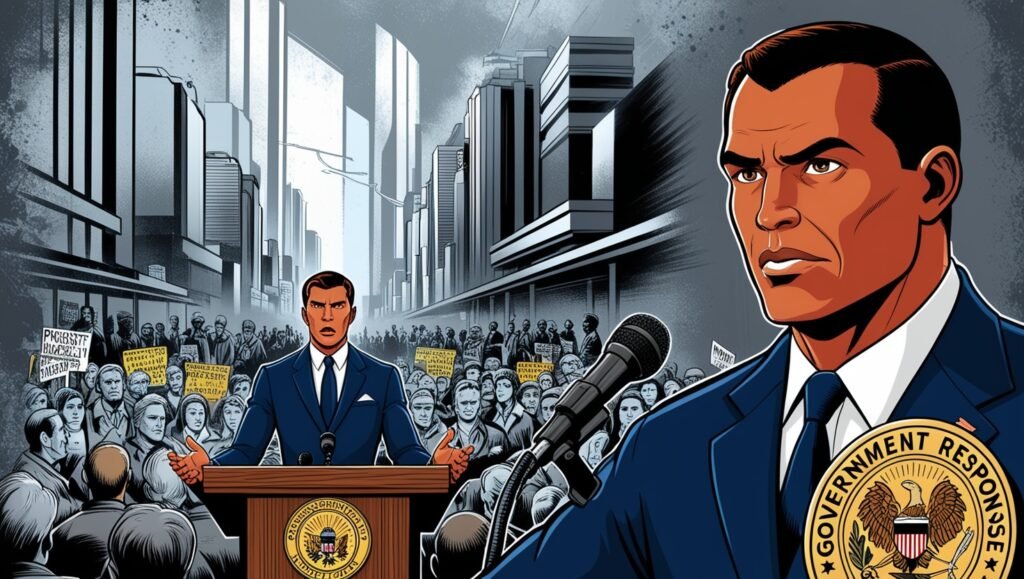Hello everyone! Today I will discuss the intersection of social and political dynamics and extremism in particular. Have you ever considered the question of escort agency services and how political or social unrest can promote increasing radicalism in the country? Throughout history, Bangladesh has been regarded as a country with a rich culture and a diversity of people. However, it’s struggling right now as there are so many difficulties awaiting for it.
However, the rise of Islamic extremism is the most dangerous concerning the stability of the country. In this article, I try to understand the factors behind the present chaos of Bangladesh, the rise of extremist groups, and the consequences for the nation and region in general.
Let’s dive in!
Chaos in Bangladesh Creates Opportunities for Islamic Extremists
Understanding the Context Political Instability
Since ancient times, Bangladesh has witnessed a violent ascent and descent of political cultures, primarily in the form of intra-party power clashes. Power changed hands several times, even in the short period since the country’s independence in 1971. The oscillation was between democratic politics and military regimes, with each creating apprehension and suspicion among the people.
The Role of Political Parties
For the purpose of grabbing and holding on to political power, the two main political parties in the country, namely the Awami League and the Bangladesh Nationalist Party (BNP), have often employed or resorted to violent means, resulting in chaos, confrontations and street agitation. These ethnic politics have hampered governance but above all, many citizens are left out of the system and do not even see the point in politics.
Economic Challenges and Unemployment
Bangladesh struggles with economic problems apart from the political hazards in the country. The nation has recorded progress in achieving certain milestones, such as attaining remarkable gross domestic product growth over the years. However, unemployment, inflation, and income disparity are some of the challenges that still exist. A good number of youths, especially those from disadvantaged groups, find it tough to get stable jobs, making them susceptible to radicalization.
The Emergence of Extremist Groups
With the advent of the present situation, which can at best be described as chaotic, extremist groups in Bangladesh have managed to broaden their tentative reach. Such Organizations as ‘Ansarullah Bangla Team’ (ABT) and ‘Jamaat-ul-Mujahideen Bangladesh’ (JMB) are known for their extremism and violent activities.
Recruitment Strategies
Such terrorist organizations are efficient in amassing and using the plethora of anger as older/younger generations who are not ‘being’ used come forward to fight the system. They also use other forms of the Internet, such as Social Networking websites, to widen the scope of their reach because it is easier to reach unattainable individuals filled with despair and hopelessness.
Violent Attacks and Terrorism
In recent years, there have been many incidents of violence within Bangladesh, which can also be attributed to these extremist groups. The nation has already undergone traumatic experiences of high-profile assassinations of even writers, bloggers, and members from minority communities. These attacks were a stirring call for alarm in the safety of the general citizen. Such violence becomes a strong tool for recruitment as it breeds fear and divides society even further.
The Role of Religion in Extremism

The role that religion has played in the growth of extremism within Bangladesh is multi-faceted. Islam is the main religion of most citizens, however, there exist some radicalized portions of society with more radical versions of Islam.
In the name of religion
Militant extremist factions related to Islam, all too often present misleading definitions of Islam that border on advocating violence and intolerance. These people also re-engage in violence, defending their actions in the name of ‘a holy war’ against all such groups that threaten or suppress Islam.
Societal Impact
The factors inducing the growth of Islamic radicalism have also affected the Bangladeshi society in a negative way. Values like tolerance and pluralism, that this country has remained with since time immemorial, are being threatened with the increased scope of the radical ideologies. Not only historically persecuted peoples but also liberal intelligentsia and even such groups as women are increasingly subject to persecution and violence, leading to a culture of oppression and intimidation.
Government Response and Challenges

The government of Bangladesh has formed such an assessment about extremism and even posed steps against it. Despite this geniality, the situation is met with several obstacles.
Counter Works of Terrorism
Government has also established counter terrorism measures such as suppressing terrorist organizations, monitoring probable radicals and so on. Although such measures have led to the arrest of many hundreds, or even thousands, of terrorists, their cause has not been correspondingly addressed.
Violations of human rights in counter terrorism
Detractors say that this heavy-handedness in the fight against terrorism leads to the violation of human rights. Concerns on violation of civil rights have been raised due to some of the effects which include but are not limited to arrests without due process, killing without trial, and curtailing of free expression. This has resulted in anger amongst the people which in turn serves to increase the level of violence and extremism.
The Role of International Actors
The current state of affairs in Bangladesh has effects extending beyond its borders as it impacts regional and international security. Various international actors including those from Bangladesh worry about the extremist tendencies emerging in the country.
Threat of Global Terrorism
There is a risk that radical factions flourishing in Bangladesh can also reach out to bigger terrorist organizations with their networks in South and even far East Asia. This spanning webs of networks is not only a danger to Bangladesh but also to its bordering nations and hence the need to tackle the problem at hand, belongs to the global society.
Donor Assistance and Support
Development aid and assistance has also been provided to Bangladesh by other countries and international organizations. Nonetheless, the emphasis should concentrate more broadly on the underlying factors which make people support extremist ideologies particularly poverty, ignorance and exclusion from the political space.
Building Resilience in Communities
Communities are vital to the efforts of combating extremism. By encouraging and building resilience at the grassroots level, Bangladesh will be able to reduce the risk of individuals being radicalized.
Community Engagement
Involving communities in conversations around extremism and how it affects them is paramount. Encouraged by local leaders, teachers, and others, communities can be mobilized to avert violence and promote peaceful means of addressing problems. Community-driven efforts are effective in mobilizing the public against detrimental societal practices like radicalization and protecting the at-risk segments of the population.
Mental Health and Support Services
It is very important that these people also receive mental help and counseling support, especially for the issues they may be dealing with. A lot of the people who are seduced to any extreme political engagement are doing so because they want to belong to something or have some purpose; therefore, engaging them psychologically in other endeavors can be productive.
Conclusion
The disorder depicted within the boundaries of Bangladesh poses real problems and calls for urgent interventions. This has included political instability, economic hardship, and social unrest that has sparked the emergence of Islamic extremism. Overcoming these challenges with education, community engagement and an ideology of tolerance is essential in building a person’s strength in order to avoid this in the future.
While the nation is attempting to resolve these issues, it should seek the resources within the various communities to help foster understanding and acceptance. In the future, however, there is one question that remains: What are the possible approaches for Bangladesh to take in dealing with these challenges that would allow all citizens to experience a better tomorrow?
FAQ
- What can be the possible causes of unrest in Bangladesh?
Bangladesh is plagued by political, economic, and social problems all at once, and this poses a threat to the people.
- How does this chaos contribute to the rise of extremism?
Maybe the most obvious factor is that the instability and the aggravation felt by a certain share of the population increases the level of radicalization in some individuals and gives way to the emergence of extremist groups within society.
- Which extremist groups are present in Bangladesh?
Ansarullah Bangla Team (ABT) and Jamaat-ul-Mujahedeen Bangladesh (JMB), among others, have gained infamy due to their violent practices and embrace of radicalism.
- What are the measures that can be taken to prevent extremism in Bangladesh?
There is another very powerful means directed at conquering extremism and helping young people to fight against radicalization – these are education and social activism.
- What is the perspective of the international community on this problem?
The international community would be helpful through development assistance, counter-terrorism activities, and, lastly, in addressing extremism in Bangladesh by looking at its root causes.





